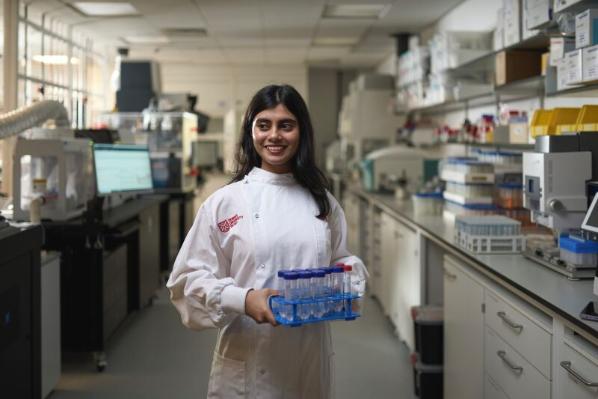
If you're thinking about studying abroad at Queen's University, you can choose courses from across a wide range of subject areas.
Interdisciplinary study is also possible, dependent on timetabling and subject pre-requisites being met.
Use the Module Search ToolMODULE SEARCH TOOL - Use the Module Search ToolIf you're thinking about studying abroad at Queen's University, you can choose courses from across our three Faculties - Faculty of Arts Humanities and Social Sciences, Faculty of Engineering and Physical Sciences, and Faculty of Medicine, Health and Life Sciences. At Queen’s you’ll be sure to find a fit for your unique academic interests, and to become a part of our academic community which is breaking new ground and creating real-world change.
Key semester dates
Study Abroad Students may apply to attend for one semester or the full academic year.
- Full Year (mid-September to late May/early June)
- Semester One (mid-September to late December)
- Semester Two (early January to late May/early June)
Semester Dates for 2025/26:
| Semester 1 | Semester 2 |
|---|---|
|
7 September 2025 Accommodation available |
3 January 2026 Accommodation available |
|
September 9 - 10 2025 Pre-Semester Engagement Programme |
From 5 January 2026 Welcome programme |
|
15 September - 20 December 2025 Induction, Teaching and Assessment |
5 January* - 20 March 2026 Induction, Teaching and Assessment |
|
15 December 2025 - 2 January 2026 Winter Vacation (Christmas Break) |
23 March - 10 April 2026 Easter Vacation |
|
14 December 2025 Semester 1 accommodation contract ends |
13 April - 29 May 2026 Teaching, Assessment and Development activities |
|
14 June 2026 Semester 2 accommodation contract ends |
|
| *The start date of Semester 2 classes varies by academic School | |
Teaching Methods
Learning in the UK and Ireland is much more independent than in other countries. The teaching of a module will usually be based on lectures, supported by tutorials or seminars, which incorporate group discussion.
Lectures typically last an hour, following a pre-set timetable that you will receive once you register with Queen's. Class sizes can range from a small group to as many as 200 students depending on the subject and module. A lecture gives students the starting point for their work, brings them up to date with the results of recent research and, in some cases, provides a view of the topic with which they may agree or disagree. While some lecturers may allow time for questions at the end, lectures are generally not designed for in-depth discussions. Most students take notes on key points, and occasionally, lecturers provide handouts summarising the material.
Tutorials and seminars are group discussions that typically last one or two hours, typically a group will contain ten students and will be led by a tutor, but this will vary depending on your chosen module. The topic for discussion is set in advance, and students are expected to prepare by reading beforehand. Active participation is encouraged, with students offering different perspectives or suggesting new approaches.
Practicals vary by subject. Language students might attend sessions in a language lab, while archaeology or geography students may go on field trips. Science students, like those in Chemistry or Physics, will have lab-based classes, and engineering students might engage in computer-aided design sessions.
Not all study takes the form of formal teaching: students are expected to do their own private study. Most lecturers will provide students with readings lists for their modules and thereafter it is up to the student to decide how much reading they want to do. How much time is devoted to private study is a matter for the individual but students are expected to demonstrate a certain degree of maturity in their approach to private study.
How you will be assessed
The assessment profile of each module can be found in the Module Search Tool. It is normally made up of essays or coursework to be submitted throughout the semester, and may also have an end-of-semester examination. A tutorial contribution may also be an element.
Study Abroad students are expected to undertake the same workload as local students and to follow all aspects of the module, including attendance at classes and tutorials and completion of assessment and examinations.
The final mark awarded for each module is on a scale of 1-100. Click here to view an approximate conversion between Queen's marks and the grading systems used in the USA, Canada and Australia. Note that this is an approximate conversion and your home institution may interpret differently the marks that you achieve at Queen's.
A transcript will be issued to your home institution within one month of the publication of results.



